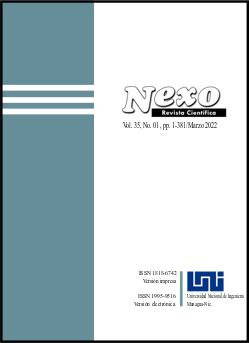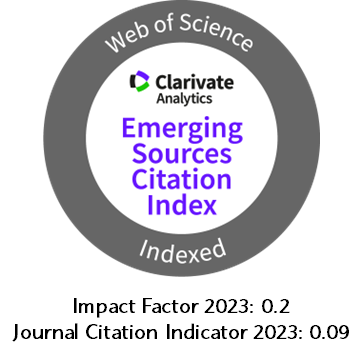Evolution of the essence and prospects for digital economy development
DOI:
https://doi.org/10.5377/nexo.v35i01.13957Keywords:
Digital Economy, New Technological Lifestyle, Digitalization, Digital TransformationAbstract
The development of the digital economy in Russia lags behind the world leaders in this process. However, to become competitive in the digital space of the global economy, it is necessary to overcome this lag. This requires generalizing theoretical approaches and concepts of the digital economy in Russia and the world, tracking the evolution of views, approaches, and development prospects, analyzing the level of digitalization, digital competitiveness rating, indicators of the development of the digital economy's development and digital government. This was done in the article since the purpose of the study is to generalize theoretical approaches to the essence of the digital economy and the prospects for its growth from the point of view of evolution. Concerning findings of the study, the evolutionary stages of the development of the digital economy have been identified, SWOT analysis of the evolution of the digital economy in Russia has been carried out, a conceptual scheme for the digital transformation of business has been devised. The paper defines the essential elements of digital transformation and their relationship.
Downloads
478
Downloads
Published
How to Cite
Issue
Section
License
Copyright (c) 2022 Universidad Nacional de Ingeniería

This work is licensed under a Creative Commons Attribution 4.0 International License.
The authors who publish in Nexo Scientific Journal agree to the following terms:
- Authors retain the copyright and grant the journal the right of the first publication under the license Creative Commons Attribution License, which allows others to share the work with a recognition of the authorship of the work and the initial publication in Nexo Scientific Journal.
- Authors may separately establish additional agreements for the non-exclusive distribution of the version of the work published in the journal (for example, in an institutional repository or a book), with the recognition of the initial publication in Nexo Scientific Journal.
- Authors are allowed and encouraged to disseminate their works electronically (for example, in institutional repositories or in their own website) before and during the submission process, as it can lead to productive exchanges, as well as earlier and greater citation of published works.











